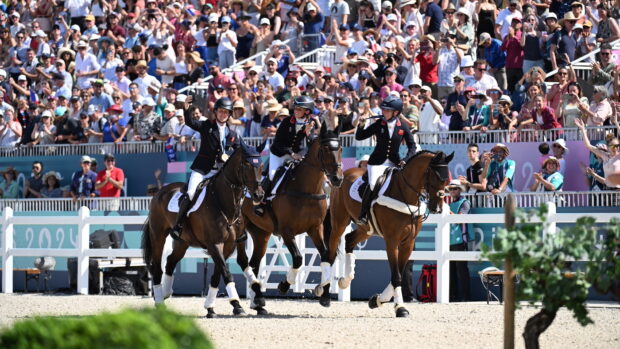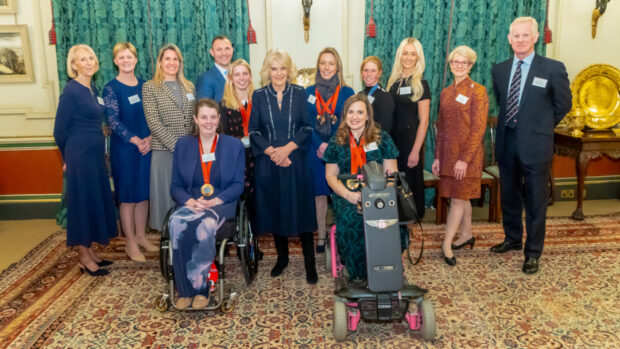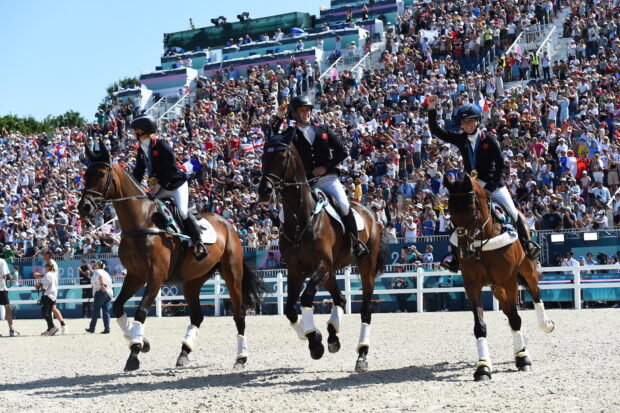Pammy Hutton on Paralympic pride and standing up for dressage
After 50-plus years’ involvement with para riders, I remain humbled by how anyone with a disability succeeds in any sport – particularly on top of a horse. It cannot always be with a perfect position and textbook aids, as some cannot achieve this. Yet their horses go as well at the level as many able-bodied riders.
Therein lies the secret – communication! And, of course, feel. Two qualities all too often neglected by riders and trainers alike.
Once upon a time, para dressage was on borrowed horses at the Paralympics. Standards are now all the better for being on riders’ own horses. Although against that is the mouth-watering expense of the right horse to win a medal.
On the one hand, the paras are now doing dressage and doing it well. On the other hand, the sport is no longer a level playing field. Money is needed to compete at the top level, fuelling elitism.
Another observation is that there are more officers than troops behind the scenes. I’ve never in my life seen more British Equestrian (BEF)-employed people in one place than at a recent para competition.
While I agree we need the BEF as an umbrella body, could more funding go to riders and trainers or the lower end of the pyramid? And, while I’m at it, how about less lunching and more support for riding schools that help to nurture future para talent?
I don’t know a thing about politics, but I know a lot about trainers. And losing Michel Assouline to the USA was very careless indeed. Michel trained the British team to bring home 64 gold medals during his 12-year tenure. He really pulls a team together with his top-class coaching abilities. I’ve said it before and I’ll say it again, but letting him go was a big mistake in my book.
However, none of this should take away from the positives. Although the Brits missed out on a team medal for the first time ever they came away individually with many bronze medals and Georgia Wilson’s silver.
To reclaim the golden era of British para dressage, we must take on board some of the above. And a heads-up, this columnist hopes to have an interest towards Los Angeles 2028 – although it won’t be me riding.
Educating the public – or else
Having watched the breakdancing (known as breaking) from the Paris Olympics, I now understand how hard it is to appreciate a sport about which one is clueless. Dressage, too, is a hard sport for the uninitiated to understand. And that’s true for the vast majority of people, including many who would otherwise label themselves as horsey.
If the public cannot grasp the fundamentals of our sport – and comprehend that what might look like unnatural movements can also be witnessed in a field of loose horses – the cause to keep dressage in the Olympic Games will be lost.
My husband Brian and I enjoyed watching the breakdancing. In our blissful ignorance, we even chose the winner – the gold medal going to the most beautiful to watch, smoothest performer. Something to remember as we all work hard to maintain equestrian sport?
We must stand up for dressage
Oh, British Dressage, BEF and FEI! Couldn’t you have had one competent spokesperson to do timely press interviews, stand up for dressage and help the sport move forward when it most needed you?
I’m referring, of course, to the overbearing shadow of “that video”, which hung over the first week of an otherwise fantastic Olympic dressage competition.
I only did my thing and spoke to the media as no one else stepped up. I was probably the only rider in Britain not to receive an email telling me to keep quiet. Although to be fair, I was thanked afterwards.
Honestly, dressage’s media representation has been as much good as a chocolate teapot. Subsequent cautious statements said the right thing, but they said so little. Meanwhile, social media is going nowhere and neither is the backlash.
So let the change begin with softer, happier horses and kinder training to the fore.
● Do you think dressage needs better representation in the media? Write to us at hhletters@futurenet.com, including your name, nearest town and country, for the chance for your letter to appear in a forthcoming issue of the magazine
- To stay up to date with all the breaking news throughout the National Dressage Championships, Blenheim Horse Trials, HOYS and more, subscribe to the Horse & Hound website
You might also be interested in:

‘Hopefully I’ll do both’: British para rider and new Grade IV national champion aiming to compete at inter I

‘I’m really proud’: British para stars crowned at National Dressage Championships 2024

‘Promoting horse welfare and educating riders’: Pony Club changes policy on spurs

Subscribe to Horse & Hound magazine today – and enjoy unlimited website access all year round




